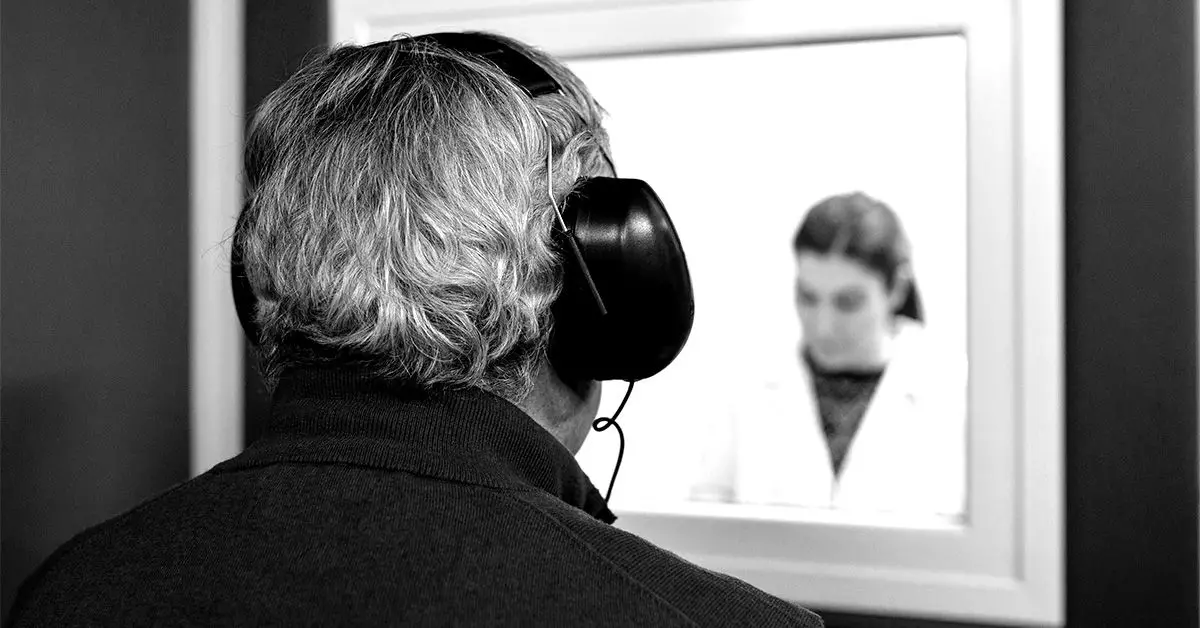Hearing loss has emerged as an underappreciated public health dilemma, affecting millions globally. The statistics are startling, particularly as they correlate with age; approximately one-third of individuals aged over 60 experience some degree of hearing impairment. However, the implications extend beyond simple hearing deficits—new research indicates a pronounced connection between hearing loss and a heightened risk of dementia. This evolving narrative illustrates not only the immediate consequences of auditory deficits but also the long-term cognitive ramifications that can arise as the population ages.
Compelling studies reveal an alarming trend: hearing loss may escalate the likelihood of developing dementia by almost one-third. Researchers assert that this alarming association deserves urgent attention, highlighting the importance of early detection and management of hearing loss as a potential strategy to curb the prevalence of dementia among older adults. While addressing hearing impairment may not singularly eradicate the threat of dementia, it could notably delay its onset, a possibility that is especially vital given the rising aging population.
Understanding the Evidence
A pivotal study led by the researchers from Johns Hopkins Bloomberg School of Public Health has meticulously unpacked the correlation between hearing loss and cognitive decline. By examining a cohort of older adults engaged in the Atherosclerosis Risk in Communities Neurocognitive Study (ARIC-NCS), researchers have shed light on how even mild and moderate hearing loss can correlate with increased dementia risk. Findings suggest that mild hearing loss is associated with a 16% risk elevation, while moderate loss raises susceptibility by 17%. Remarkably, over two-thirds of the 2,946 participants in this study exhibited clinically significant hearing loss, underscoring a widespread health concern.
The methodology employed, which combined both audiometric testing and self-reported measures, has enabled a nuanced understanding of hearing loss within this demographic. What stands out from the analysis is the recognition that demographic factors like age, sex, and self-reported race contribute to the risk landscape, allowing for a more tailored intervention approach. Nevertheless, the study makes a bold claim that, despite the strong associations observed, a definitive causative pathway remains to be confirmed—a reality that forces us to adopt a cautious yet proactive stance regarding intervention measures.
Exploring the Mechanisms at Play
Researchers propose that the connection between hearing loss and dementia might be tied to changes in brain structure and function. The mind’s reliance on auditory inputs means that diminished stimulation can profoundly impair cognitive resources. Neurologists like Steven Allder advocate that hearing loss may lead to a lack of auditory engagement, which can culminate in social isolation and cognitive decline. With the brain’s resources diverted to compensate for lost auditory information, we see a detrimental ripple effect on cognitive functions essential for memory and executive functioning.
This illuminative line of reasoning underscores the necessity for early intervention. By incorporating routine hearing tests around midlife, we could potentially identify and address significant changes before they spiral into more severe cognitive issues. Transforming our approach to hearing health is essential to reversing this trend of declining cognitive abilities.
The Call to Action: Managing Hearing Health and Dementia Risk
In light of these compelling findings, there emerges a clarion call for older adults to prioritize their hearing health. While evidence remains ambiguous regarding whether treating hearing loss can decisively lower dementia risk, the overall benefits of managing auditory health cannot be overstated. Hearing aids, for instance, have shown to improve quality of life by enhancing communication, thus potentially preventing the cognitive decline associated with prolonged social isolation.
It is crucial, therefore, for older adults to be proactive about discussing their hearing status with healthcare providers. Early identification, effective treatment, and routine assessments form a triad that may redefine how we approach dementia prevention. The intersectionality of sensory health—where hearing and vision impairments frequently co-occur—also lends weight to the argument calling for a holistic approach in public health initiatives aimed at this aging demographic.
Ultimately, as we navigate this complex relationship between hearing loss and cognitive health, the evidence compels us to be advocates for proactive management strategies. By fostering awareness about the intricate ties between sensory health and dementia, we can empower individuals to make informed decisions that could reshape their cognitive futures. The narrative of hearing loss is no longer just about the sounds we miss; it is about the vibrant lives we can reclaim by taking control of our hearing health.

